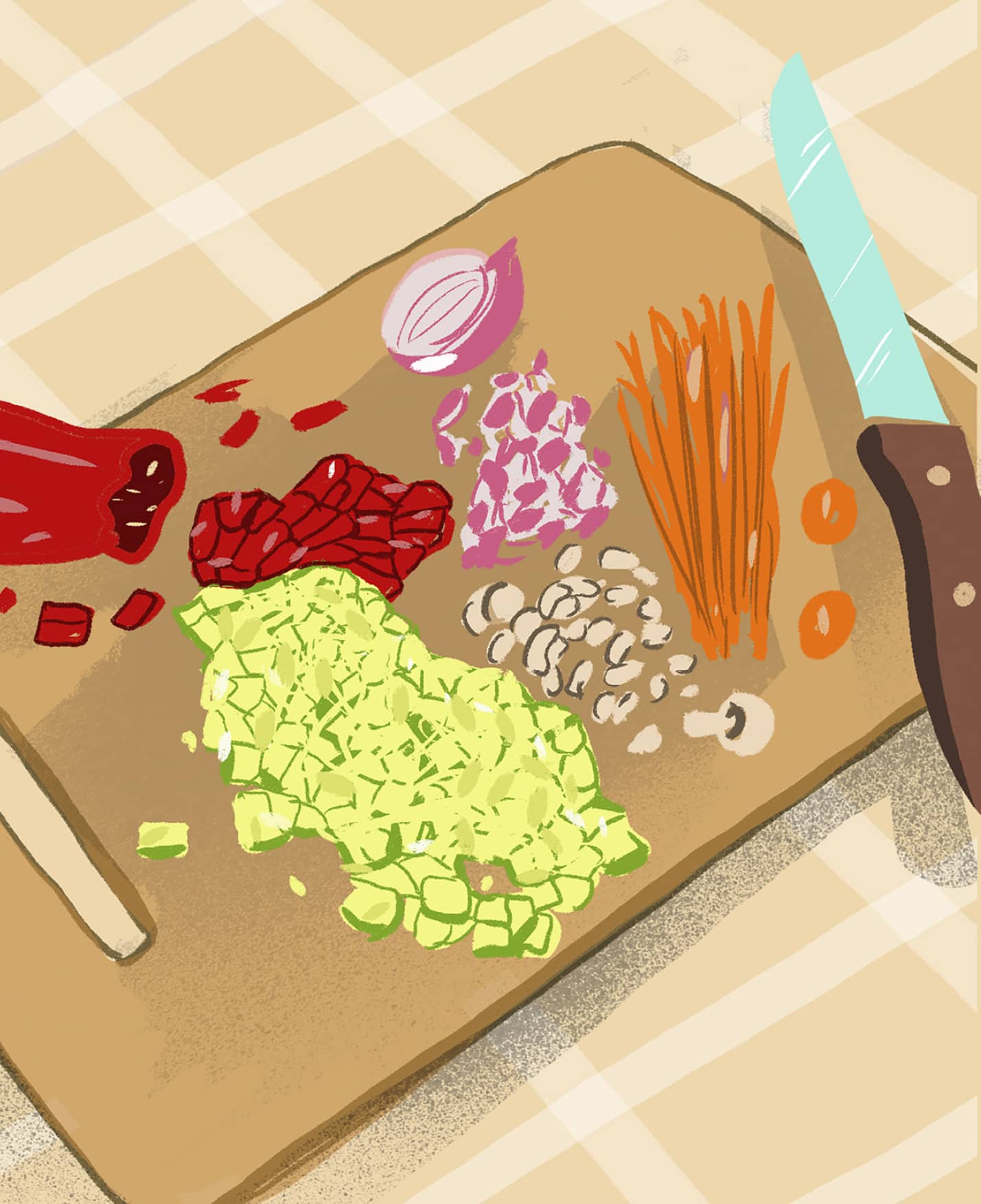The World on Your Plate
People often congregate in the kitchen. It can be the busiest room in the home, the location for a whole range of domestic activities, and also a social hub. If a visitor stops by, it’s the kitchen we go to for a cup of tea. If we have a table in there, this provides a warm and inviting place for the children to do their homework while the enticing aromas of the evening meal fill the room.
Whether we’re lucky enough to have a big cosy kitchen or not, it is never just to store and prepare the food. We work in there to create the meals that celebrate the company of friends and family, where spontaneous kitchen discos can happen as we feel free to dance to the radio, a chance to let go and have some silliness in our lives.

A MINDFUL KITCHEN
The kitchen offers one of the best places in the home to practise mindfulness. We can take time to observe exactly what we are putting into our bodies, and remind ourselves of the benefits food can bring to our minds. How we feel when we finish a meal can shape the next few hours, our moods and our actions. A sugary takeaway may provide a quick fix, but the post-mealtime slump can make us feel lethargic and head for the TV controller rather than choosing a different activity; there’s no need to be too purist about food, but dinners prepared at home do us good when we can manage them.
There is an ancient belief that the cook imbues a meal with a light touch of their own emotions. Preparing our own food is an act of self-care, we are nourishing our bodies and minds and this helps us physically and mentally, reminding us to look after ourselves the best we can.
Many mindfulness practices take place in yoga studios or meditation spaces where the surroundings are peaceful. The real meditation starts to take place when it’s intimately integrated into daily life. Whenever you notice that you lose presence and start thinking about something from the past or future rather than being here and now, stop what you are doing, take five deep breaths and observe what you are creating. Continue with the activity and try to remain present; before long it will become more natural and effortless. Your cooking will be more inspired, you will be more nourished by the food you are creating and more aware of its flavours and taste.
We all remember a certain dish from our childhood, the emotion and the nostalgic feeling it generates comes from how the food was prepared. The next time you are in the kitchen, chop slowly, smile and cook with love.
SLOW IT DOWN
Having a functional and modern kitchen is truly a blessing. It helps turn meal preparation into a pleasurable activity amidst the busy hustle and bustle of life. How often are we mindful of this space and the activities that take place within it?
We often race around the kitchen, grabbing things out of the cupboards, perhaps with people chatting around us, without paying much attention to the process of cooking and the energy going into it. When we do this, we missing that opportunity to be mindful and slow down. Kids come running in needing help with homework; the phone rings; the doorbell chimes. Rather than getting flustered, it helps to see these interruptions as a chance to interact with others, a natural rhythm between one mindful way and another. We can then return to the process of meal preparation, settling back into a quieter focus. Peeling and chopping vegetables can be a gentle, meditative process; notice the colours and textures of the food you handle, being mindful about using all parts of the vegetables and reducing waste. Take in the smells whilst chopping, notice whether you are rushing to get the jobs done, and perhaps try to pace yourself and see if this makes a difference. And if you can’t cook from scratch every day, don’t be hard on yourself: even throwing convenience foods into the microwave is feeding the body and, if you do it with kindness and attention, the spirit.